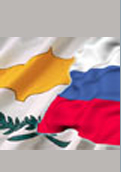Russia and the Geopolitics of Cyprus Bailout
The Cyprus crisis has highlighted the existing geopolitical fissures between Russia and the European Union and raised the proverbial ‘east vs. west’ conundrum. President’s Putin’s Eurasian Economic Union project and Russia’s growing engagement with countries of Asia indicate the turning of wheels.
- Rajorshi Roy
- June 14, 2013












